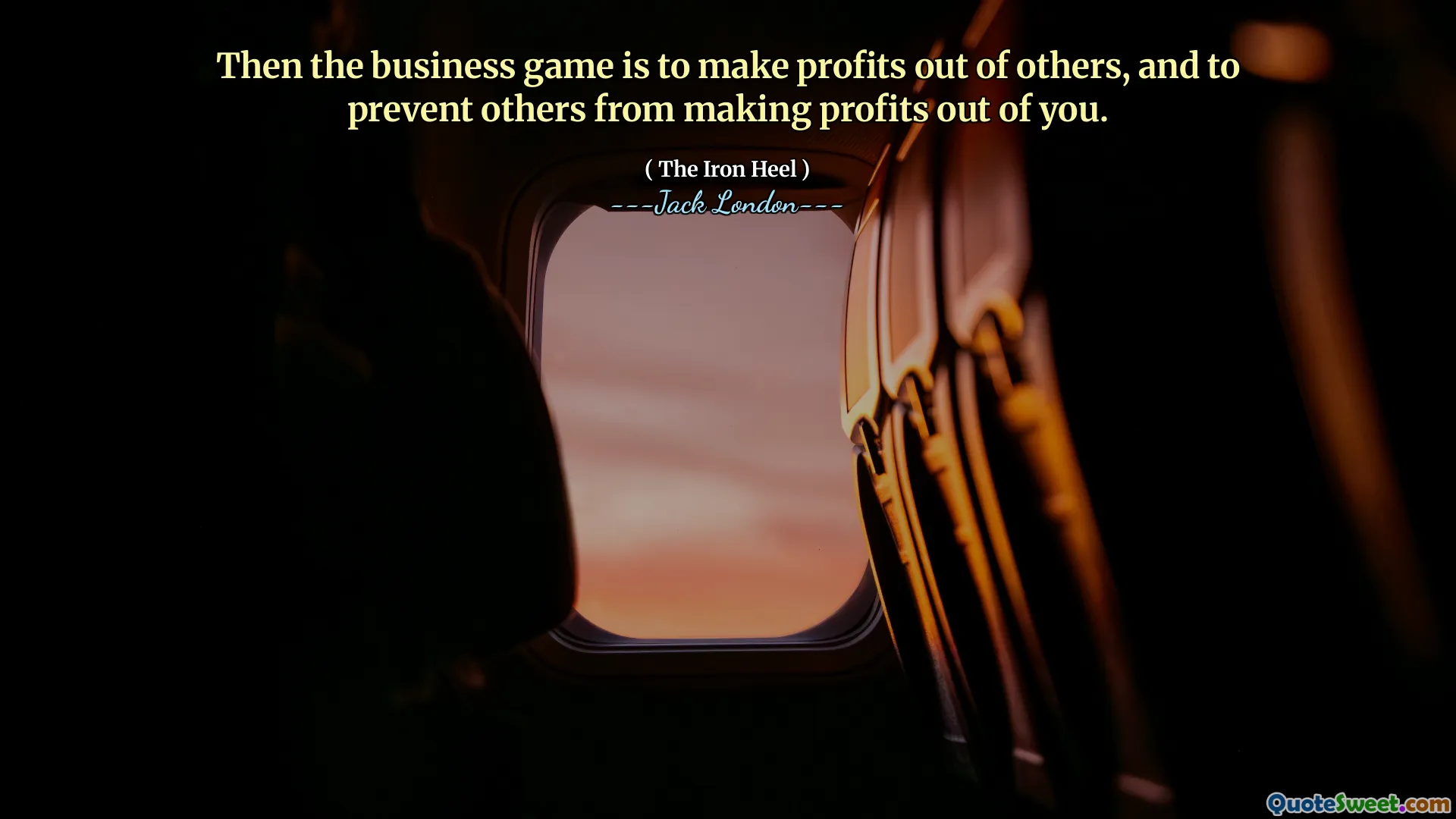
Then the business game is to make profits out of others, and to prevent others from making profits out of you.
This quote from Jack London's "The Iron Heel" sharply encapsulates a fundamental tension inherent in capitalist economic systems—the competitive struggle to gain financial advantage while defending oneself against exploitation. The phrasing frames business as a strategic game, emphasizing that success in this arena is not just about creation or service but also involves navigating a complex network of economic interests where one party's gain can mean another's loss. This perspective can be viewed as both pragmatic and somewhat cynical, reflecting a worldview where trust is scarce and profit motives override other considerations like ethics or cooperation.
Reflecting on the implications, it prompts us to question how this 'game' shapes behaviors and systems in real life. It suggests that much of the economic landscape is zero-sum, where individuals and companies must constantly edge out competitors to survive and thrive. While this competition drives innovation and efficiency, it also fosters adversarial relations and inequality. It highlights the delicate balance in business: aggressive enough to secure one's share but cautious enough not to be exploited.
This quote also invites contemplation on the human dimension behind economic transactions. The idea of making "profits out of others" can be unsettling if taken to extremes, suggesting exploitation, manipulation, or dominance. It challenges us to consider how business ethics, regulation, and social responsibility can mitigate the harsher dynamics of this 'game.' Ultimately, it suggests that understanding this competitive nature is critical in navigating and shaping the economic environments we participate in or hope to reform.






